Road to transformation
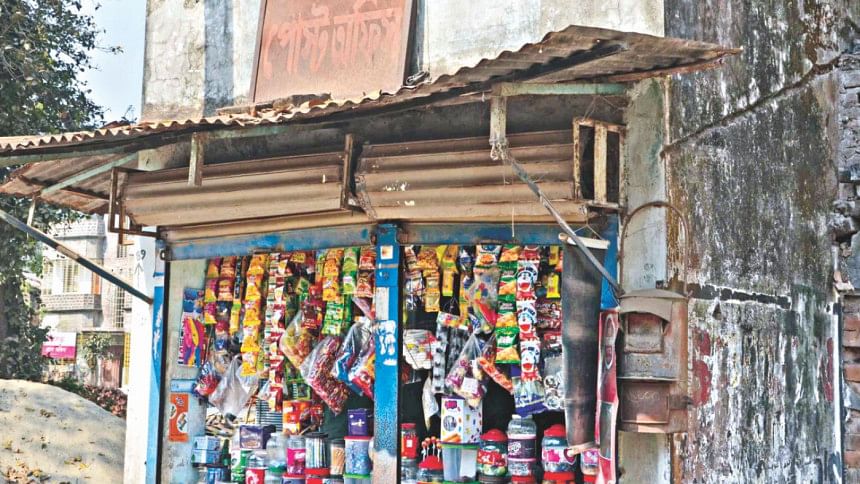
Commemorating the establishment of Universal Postal Union in 1874, World Post Day is observed on October 9. Marking the day, we are running three special stories on the current state, future and manpower of our postal service.
Shahin Islam, a flood victim in Bogra's Kuripara village, never thought it would be so easy to withdraw money using Bangladesh Post Office's Electronic Money Transfer Service.
All he had to do was go to Sariakandi post office, show the official concerned the pin code he received on his mobile phone and collect Tk 5,000 sent by Bangladesh Red Crescent Society as financial aid.
“This saved my time… I got the money almost on my doorstep. It was almost effortless,” said Shahin, a farmer.
Another flood victim, Aslaot Mandal, also collected money the same way. “Initially, I was confused. But when I received the cash, I was surprised,” he said.
Like the two, members of 1,750 flood-hit families in the area withdrew money with ease, using the EMTS also known as mobile money order service.
This shows how the EMTS system of the postal department is taking financial services to people across the country, even in far-flung areas.
And it's easy and time-saving to remit and receive money using the system.
One just needs to go to a post office or Banglalink service point, hand in money to the official or agent concerned, and give the mobile number of the recipient.
A pin code is then sent to the mobile phone of the recipient, who can withdraw the money from nearby post office or a Banglalink service point by showing the code.
As the conventional money order service was time-consuming, expensive and inefficient, a demand for quick transfer of money prompted the postal department to launch the EMTS in May 2010. It was the country's first and only mobile phone-based payment system at that time.
The service gained huge popularity almost immediately with a transaction of Tk 2,264 crore in the first year.
But it failed to withstand competition with private ones in later years, losing its business mostly to Brac Bank's bKash and Dutch Bangla Bank Limited's Rocket services.
In fiscal 2015-16, the transaction volume of the state-run venture dipped to as low as Tk 261.54 crore.
In an effort to salvage the venture, the postal department overhauled the service late last year. It took on board Banglalink, a private mobile operator, as its partner to use the latter's vast network and distribution channel to make the service more accessible.
“We are trying to upgrade our MFS [mobile financial services] with full security features to give people the same kind of experience they get from the services offered by other MFS operators,” said Bangladesh Post Office Director General Sushanta Kumar Mondal.
At present, 2,749 post offices and Banglalink's 39,000 distribution points are offering the service.
The DG hopes the revamped service would gain popularity.
“2017 is a year of transformation for us,” he told The Daily Star.
In December last year, the postal department started delivering products sold on e-commerce websites in the capital. The service is now available at 22 post offices in the city.
The department plans to expand the service to other parts of the country, Sudhangshu Shekhar Bhadra, additional DG of Bangladesh Post Office, told this correspondent.
“Through our delivery service, e-commerce entrepreneurs can deliver products for a minimum charge of Tk 10, depending on weight and prices of products,” said Sudhangshu.
“We would expand our e-commerce delivery network to the division level by December and then to the district level by June next year,” he added.
Apart from the EMTS and delivery services, the postal department offers a host of financial services, including savings certificate, post office savings bank scheme, money order, postal order and postal life insurance.
Savings bank scheme, savings certificate and postal life insurance are the three oldest schemes launched in 1872.
Savings certificate for pensioners has been a huge success with deposits growing 25 times to Tk 28,426.60 crore in fiscal 2016-17 compared to Tk 1,114.57 crore in fiscal 2015-16.
“We have lots of financial services and we want to expand them,” said Sushanta.
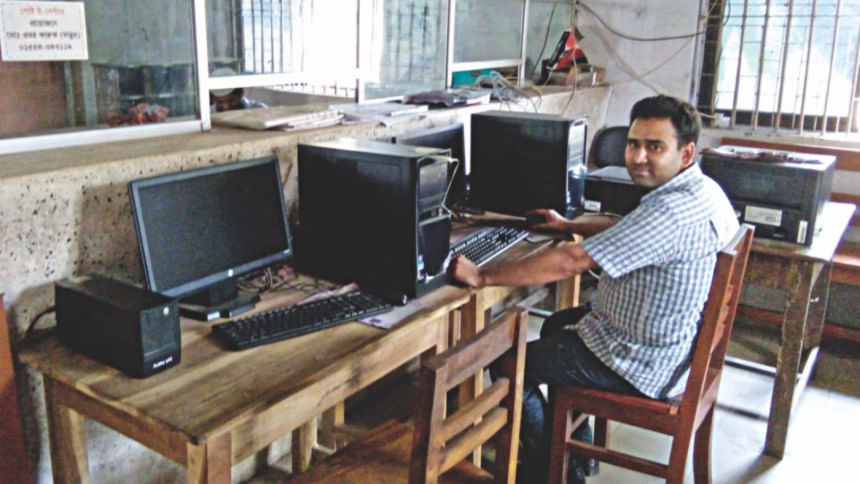
Depositors choose to keep money at post offices because those offer better returns compared to commercial banks, he added.
Currently, postal savings offer 11.76 percent interest on pensioner savings scheme, 11.28 percent on fixed deposits and 11.04 percent on savings certificates maturing in three months.
Most banks offer around 7 percent interest on deposits.
The DG said the department is now working with a private commercial bank to launch agent banking service.
It has also sought approval from the prime minister for launching basic banking services all over the country.
If approved, it would be the country's largest banking network in terms of coverage. Among the 9,866 post offices across the country, the department plans to launch banking services in 3,000 offices initially.
With some 1,200 branches, state-run Sonali Bank now has the largest banking network.
Talking to this correspondent, Tarana Halim, state minister for posts and telecommunications, said, “Post offices can ensure the government's presence in the remotest part of the country. It will also be able to provide digital services as traditional postal services are going to be obsolete gradually.”
She also highly appreciated the increase in the postal department's revenue which rose to Tk 374.22 crore in fiscal 2016-17 from Tk 301.18 crore in the previous year.
However, the postal department has suffered setbacks in some of its initiatives.
Its foreign money order and Postal Cash Card services have failed to gain popularity.
The department didn't receive any foreign money order in the last two fiscal years, according to its annual report.
However, as an agent of US financial services company Western Union, it processed 1,765 transactions involving Tk 6.61 crore and earned only Tk 39,000 in fiscal 2015-16.
About a couple of years back, the department launched Postal Cash Card, which can be used as a debit card at ATM booths or outlets under Qcash network.
But the service failed to get the expected response from consumers, as it cannot be used at ATM booths or shops that use transaction networks other than Qcash, according to postal department officials.
Sushanta said they now have 20,000 point of sale (POS) machines at post offices where the clients can use these cards to withdraw money.
The department has already signed agreements with 12 commercial banks which would accept its cards at their ATM machines.
He mentioned that more than one lakh individuals are now using Postal Cash Cards.
They include 51,000 marginal beneficiaries who receive allowances through these cards under social safety net programmes.
Besides, 1,257 garment workers get salaries through these cards, according to the postal department's annual report for fiscal 2016-17.
The DG said they were drawing up plans to make the card service popular all over the country.

 For all latest news, follow The Daily Star's Google News channel.
For all latest news, follow The Daily Star's Google News channel. 



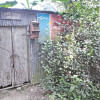
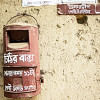
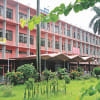


Comments